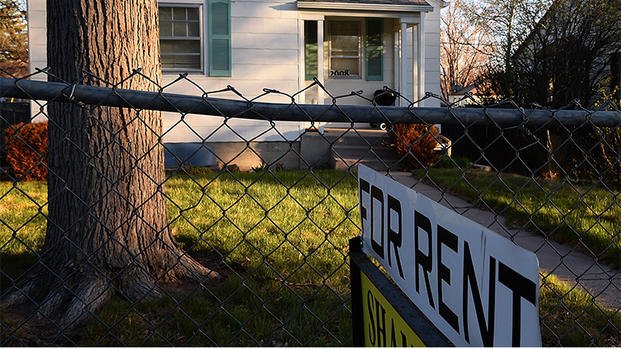A couple of years back, the 2012 National Financial Capability Study reported that 40% of American families could not, or probably could not, come up with $2,000 within 30 days if faced with an emergency. A recent conversation plus a couple of articles about landlording made me think about that study, and the staggering amount of money that homeowners can sometimes when surprises happen. And, particularly, how that need can be more urgent for landlords, who don't always have the luxury of putting off repairs until they fit in the family's budget.
Homeownership is always an expensive proposition: when the house is yours, you are solely responsible for repairs when they need to be made (unless it is something that would be covered by homeowner's insurance, and the cost justifies making a claim.) Some items can be put off, like that kitchen counter with the nasty gouge, or the hole where the wall wasn't properly protected from the a door knob. Other items can't be delayed, like replacing a bad furnace in the winter or unclogging a stopped up sewage line.
Repairs and maintenance become even more urgent when you are renting the house out. First, you have a contractual obligation to provide the house that you leased - you can't just ask the tenants to not use a non-working shower indefinitely. Second, a poorly maintained house is harder, or impossible, to rent. Third, the nature of not living in a house means that repairs often come in bunches. Sometimes, big bunches.
Last August, one of my rental properties had a banner month, and not in a good way. Old tenants moved out, and preparations for the new tenants got expensive fast. It didn't start out too bad, just some small things here and there, and a scheduled flooring replacement. As often happens, one small project uncovered a few larger problems, and then next thing you know we'd spent nearly $10,000 on what supposed to be a typical turnover with new carpet. Plus, we decided to slightly accelerate a not-quite-urgent-yet roof replacement to the tune of $11,000. All told, we spent about $20,000 on that rental property that month. While we had the money in reserves for maintenance, it was still really painful to spend so much money in such a short amount of time. And plenty of landlords don't have the financial capacity to deal with these types of issues, creating a bad situation all around.
While our August may seem atypical, homeowners often face big-ticket maintenance and repair costs, and landlords have fewer options for deferring work until it fits their budget. Just ask my neighbor who discovered a foundation issue that cost $40,000 to repair, or the renter on Facebook whose landlord is putting off replacing a damaged main sewer line, resulting in backups.
If you choose to get into landlording, you have an obligation to yourself and to your tenants to have the financial resources to take care of your property. Don't assume that $500 in your emergency fund is sufficient to cover the multitude of things that might happen to your property, and don't expect your tenants to be patient while you figure out how to pay for repairs. Landlording is a business, and it is a business that requires money. Trying to be landlord without the financial plans to do it right is a recipe for unhappiness and frustration









